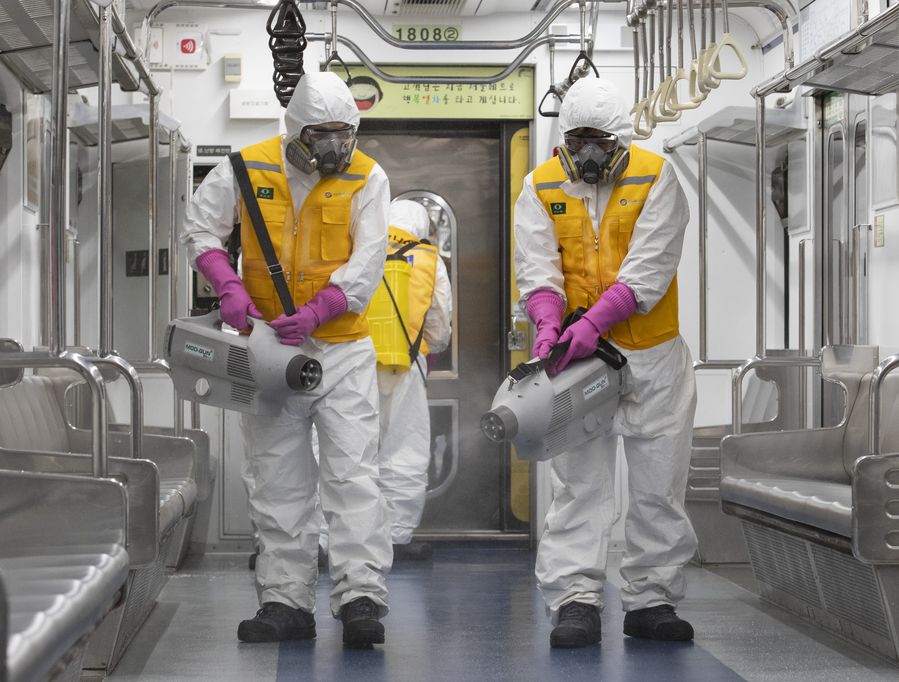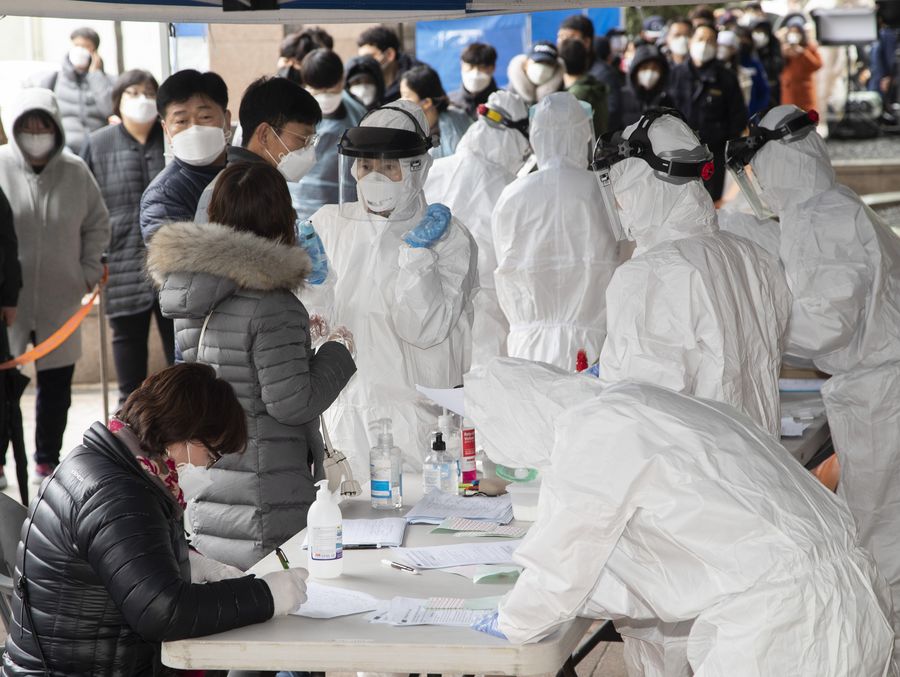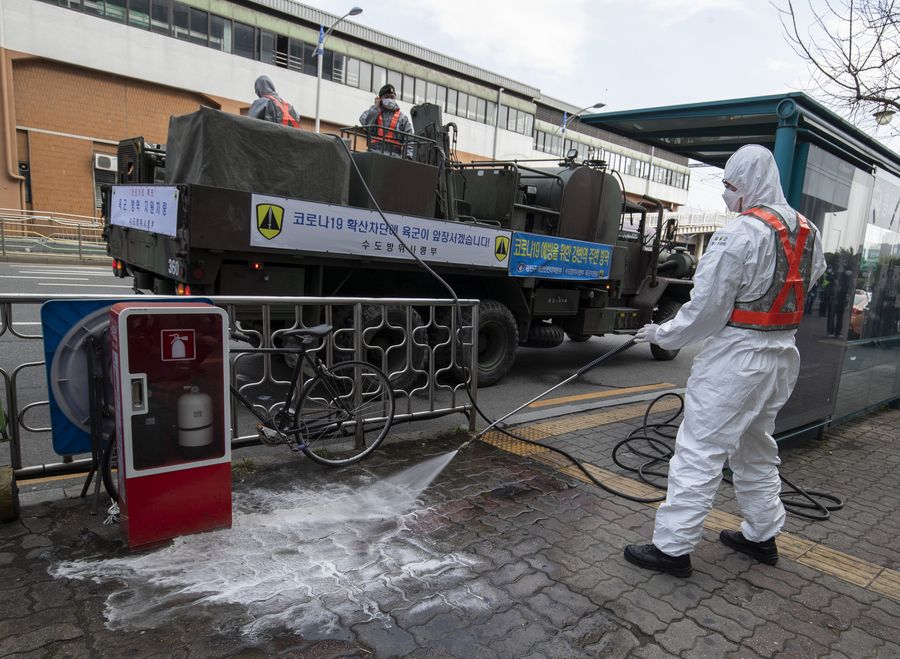
Staff members sterilize a metro train in Seoul, South Korea, March 11, 2020.(Xinhua/Lee Sang-ho)
South Korea reported 76 more cases of the COVID-19, raising the total number of infections to 8,236. South Korea has expanded tighter immigration procedures to people from all European countries on Monday to help prevent the imported COVID-19 cases.
SEOUL, March 16 (Xinhua) -- South Korea reported 76 more cases of the COVID-19 compared to 24 hours ago as of midnight Monday local time, raising the total number of infections to 8,236.
The newly confirmed cases stayed below 100 for the second consecutive day, after recording the first double-digit growth in 23 days on Sunday.
One more death was confirmed, lifting the death toll to 76.
A total of 303 more patients were discharged from quarantine after making full recovery, pulling up the combined number to 1,137.
The Korea Centers for Disease Control and Prevention (KCDC) decided to update the data once a day at 10:00 a.m. local time from March 10, after having announced it twice a day.
The virus infection soared for the past weeks, with 8,205 new cases reported from Feb. 19 to March 15. The country has raised its four-tier virus alert to the highest "red" level.

Medical workers register the information of citizens to be tested for the novel coronavirus at Guro-gu district of Seoul, South Korea, March 10, 2020. (Xinhua/Lee Sang-ho)
The total number of infections in Daegu, about 300 km southeast of Seoul, and its surrounding North Gyeongsang province increased to 6,066 and 1,164 respectively. It accounted for almost 90 percent of the total.
The numbers in Seoul and its adjacent Gyeonggi province came to 253 and 231 each.
Daegu became the epicenter of the viral spread here as the biggest cluster of infections was found in the metropolis with a 2.5 million population. Daegu has been designated by the government as a "special disaster zone."
The Daegu cluster was closely linked to the church services of a homegrown minor religious sect, called Sincheonji, in Daegu. Members of the sect are known to sit on the floor closely side by side during church services.
Since Jan. 3, the country has tested more than 274,000 people, among whom 251,297 tested negative for the virus and 14,971 were being checked.
South Korea has expanded tighter immigration procedures to people from all European countries on Monday to help prevent the imported COVID-19 cases.
South Korean Prime Minister Chung Sye-kyun told a government meeting on the COVID-19 outbreak that special immigration procedures began to be imposed on all people arriving from the entire Europe at midnight.

A staff member disinfects near a bus terminal at Gwangjin District of Seoul, South Korea, March 12, 2020.(Xinhua/Lee Sang-ho)
The tighter screening came as infected patients surged across Europe recently, with the number topping 20,000 in Italy and the readings in other major European nations rising sharply.
The prime minister ordered the health and foreign ministries to review whether additional measures will be needed to prevent the imported cases.
South Korea already imposed the tighter immigration procedures on nine countries, including Britain, France, Germany, Italy, Spain and the Netherlands as well as China, Japan and Iran.
Under the intensified procedures, all entrants, both South Korean and foreign nationals, will be required to get fever checks and submit papers on health conditions at airports.
They will also be required to download a self-diagnosis smartphone app to submit self-diagnosis results for 14 days and to be placed under intensive care if they show symptoms. ■



